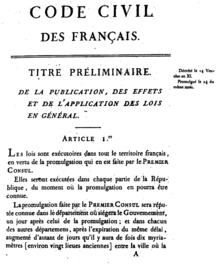NCAA Women’s Basketball Tournament 2011
Well tonight we get to focus our undivided attention on the women and high time too. The ‘Sweet’ Sixteen on the men’s side is not so much about who you’re rooting for as who you hate less.
But I digress.
| Seed | Team | Record | Score | Seed | Team | Record | Score | Region |
| 3 | *Miami (Fla.) | 28 – 4 | 80 | 14 | Gardner Webb | 23 – 11 | 62 | Southeast |
| 7 | *Louisville | 21 – 12 | 81 | 10 | Vanderbilt | 20 – 12 | 62 | West |
| 4 | *Maryland | 24 – 7 | 70 | 13 | St. Francis | 22- 12 | 48 | East |
| 1 | *Connecticut | 33 – 1 | 75 | 16 | Hartford | 17 – 16 | 39 | East |
| 6 | *Oklahoma | 22 – 11 | 86 | 11 | James Madison | 26 – 8 | 72 | Southeast |
| 2 | *Xavier | 29 – 2 | 72 | 15 | South Dakota State | 19 – 14 | 56 | West |
| 5 | *Georgetown | 23 – 10 | 65 | 12 | Princeton | 24 – 5 | 49 | East |
| 8 | Kansas State | 21 – 11 | 45 | 9 | *Purdue | 21 – 11 | 53 | East |
| 3 | *Florida State | 24 – 7 | 76 | 14 | Samford | 25 – 8 | 46 | Southwest |
| 2 | *Texas A&M | 28 – 5 | 87 | 15 | McNeese State | 26 – 7 | 47 | Southwest |
| 8 | Houston | 26 – 6 | 73 | 9 | *West Virginia | 24 – 9 | 79 | Southwest |
| 5 | *Wisconsin-Green Bay | 33 – 1 | 59 | 12 | Arkansas-Little Rock | 23 – 8 | 55 | Southwest |
| 6 | *Georgia | 22 – 10 | 56 | 11 | Middle Tennessee State | 23 – 8 | 41 | Southwest |
| 7 | *Rutgers | 20 – 12 | 76 | 10 | Louisiana Tech | 24 – 8 | 51 | Southwest |
| 1 | *Baylor | 32 – 2 | 66 | 16 | Prairie View A&M | 21 – 12 | 30 | Southwest |
| 4 | *Michigan State | 27 – 5 | 69 | 13 | UNI | 27 – 6 | 66 | Southwest |
Like the men’s bracket, few actual upsets. Only Perdue and West Virginia yesterday and only Marist, Temple, Gonzaga and St. John’s from Saturday.
Tonight and tomorrow they’re still running the quad format with Tip Off times of 7 and 9:30 pm on ESPN2.
Current Matchups
| Time | Seed | Team | Record | Seed | Team | Record | Region |
| 7 pm | 3 | DePaul | 24 – 9 | 6 | Penn State | 24 – 9 | East |
| 7 pm | 2 | Duke | 29 – 3 | 10 | Marist | 30 – 2 | East |
| 7 pm | 1 | Tennessee | 31 – 2 | 8 | Marquette | 23 – 8 | Southeast |
| 7 pm | 4 | Ohio State | 22 – 9 | 5 | Georgia Tech | 23 – 10 | Southeast |
| 9:30 pm | 2 | Notre Dame | 26 – 7 | 10 | Temple | 23 – 8 | Southeast |
| 9:30 pm | 1 | Stanford | 29 – 2 | 9 | St. John’s | 21 – 10 | West |
| 9:30 pm | 4 | Kentucky | 24 – 8 | 5 | North Carolina | 25 – 8 | West |
| 9:30 pm | 3 | UCLA | 27 – 4 | 11 | Gonzaga | 28 – 4 | West |
Follow the 2011 NCAA Women’s Basketball Tournament on The Stars Hollow Gazette.
If you don’t like squeeky shoes you can look for alternate programming here-
If you like a more traditional bracket try this NCAA one, they also have a TV schedule.

 On this day in 1804,
On this day in 1804,  The big business news that hit the “airways” yesterday was the announcement that
The big business news that hit the “airways” yesterday was the announcement that
Recent Comments